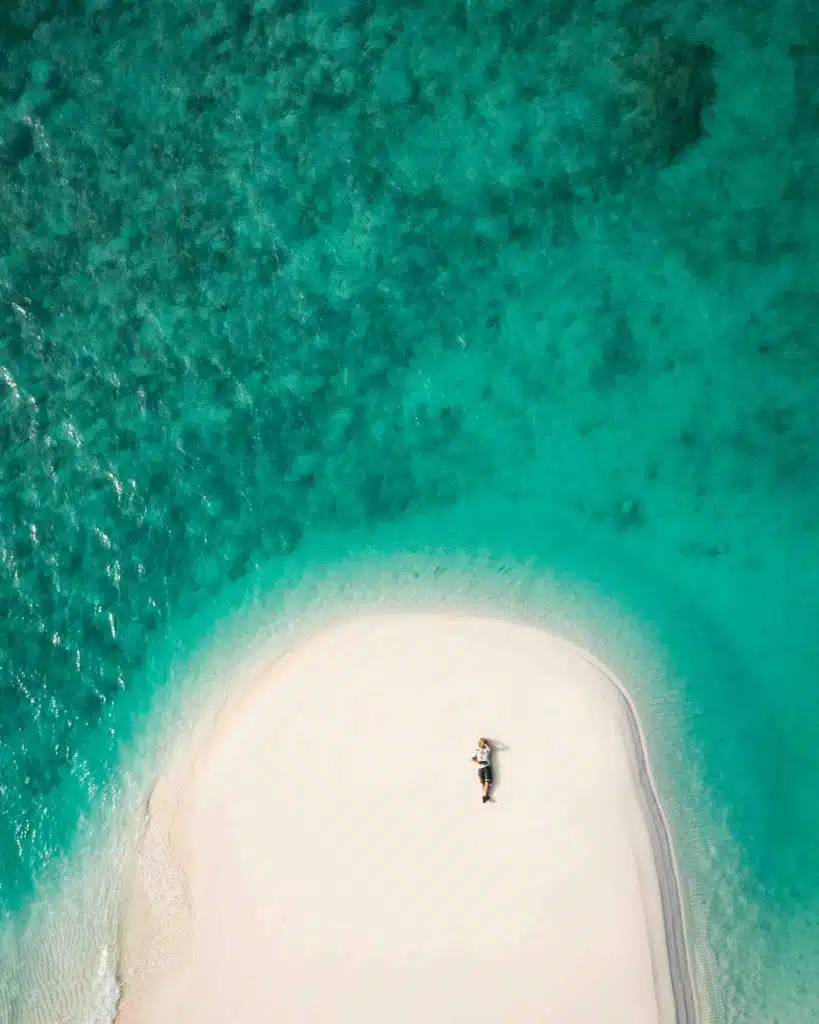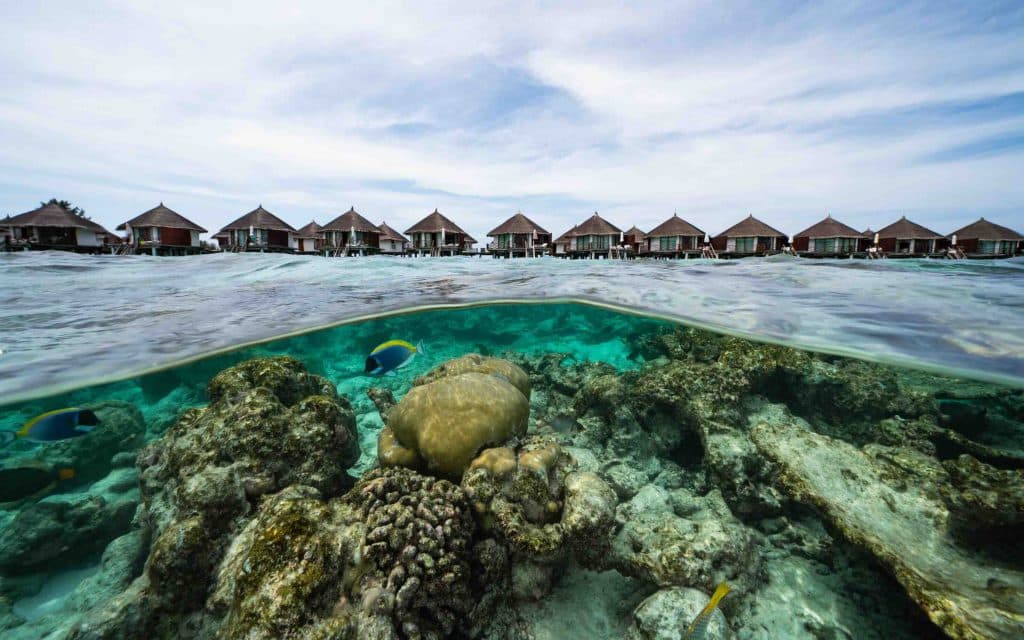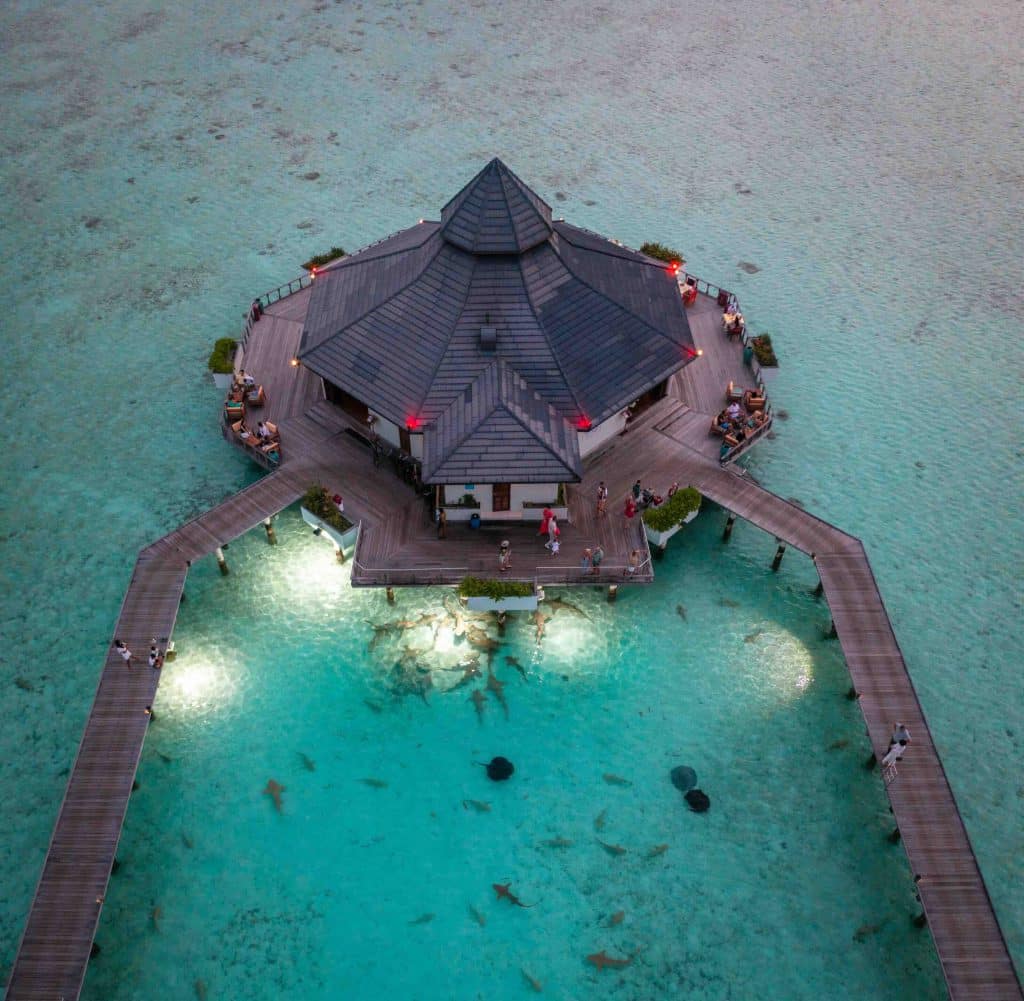My nearly 10-hour flight from Ho Chi Minh City took me to Malé, the capital of Maldives, a small but well-known country in the Indian Ocean. It's renowned as a paradise of islands and beaches, with pristine white sand, crystal-clear waters, and endless coral reefs.
Photographer Thien Nguyen on the sandy beach amidst coral reefs in South Ari Atoll
However, hidden beneath that beauty is a fragile marine ecosystem, facing significant challenges from climate change and human impact. To protect this island, the government and people here have proactively developed sustainable tourism , focusing on environmental protection. For me, my visits to the Maldives are not simply about enjoying the beauty of the vast ocean, but also about learning about the efforts to conserve the marine ecosystem here.
The Maldives marine ecosystem: A treasure trove of nature.
The Maldives is the world's largest coral atoll, boasting nearly 1,200 small islands formed from 26 atolls, creating a rich and diverse marine ecosystem. Coral reefs not only provide habitats for many species but also play a vital role in protecting the islands from strong waves and erosion. With thousands of fish and coral species, it is home to many iconic animals such as tiger sharks, manta rays, nurse sharks, and sea turtles.
The resort floats on the sea, surrounded by coral reefs in North Ari Atoll.
Sustainable tourism: The heart of the Maldives
Instead of chasing the trend of massive tourism development, the Maldives has implemented numerous marine conservation policies to protect this stunning island nation blessed by nature. The government and conservation organizations such as Manta Trust and Olive Ridley Project have carried out many programs to protect sea turtles and sharks, and established marine protected areas to limit human impact. Resorts here are also designed in harmony with nature, applying green technology to optimize the integration between humans and the environment, including many famous resorts such as Soneva Fushi, Soneva Jani, and Six Senses Laamu.
In the Maldives, tourists have the opportunity to experience unique and diverse eco-friendly activities, from responsible scuba diving to participating in coral reef restoration. In addition, the Maldives boasts many inhabited islands where visitors can explore the local culture and lifestyle. Islands like Maafushi, Dhigurah, and Fuvahmulah not only offer eco-friendly accommodation and diving services but also help local communities benefit from sustainable tourism.
The lights from the floating eco-restaurant in South Ari Atoll attract schools of sharks and stingrays.
Challenges and the future of sustainable tourism
Despite its many achievements in environmental protection, the Maldives still faces challenges from climate change, rising sea levels, and coral bleaching that threaten its rich flora and fauna. In addition, the increasing number of tourists can significantly impact the ecosystem; therefore, effective tourism management is essential to protect resources, maintain ecological balance, and ensure long-term economic benefits for local people.
The paradise island nation of Maldives is a living testament to the potential for sustainable ecotourism development. Visitors not only enjoy the services but also have the opportunity to witness firsthand the harmonious blend of nature and humanity, learn about environmental protection, and develop responsible tourism. The continuous efforts of the government, businesses, and tourists to Maldives are contributing to preserving the beauty of this place for future generations.
Source: https://heritagevietnamairlines.com/vuong-quoc-dao-thien-duong/




















































































































Comment (0)